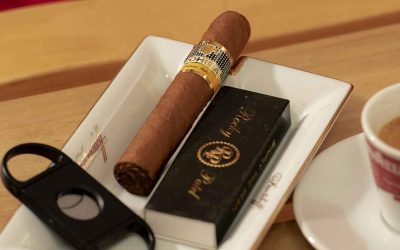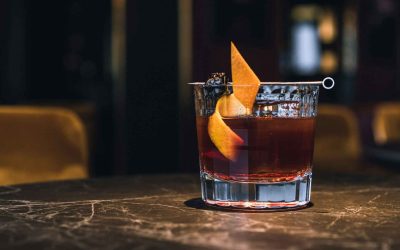For more than a century, the world of premium cigars has revolved around one mythic name – Cuba. The island’s fertile soil, perfect humidity, and storied factories became synonymous with quality, mystique, and craftsmanship. But as history and politics reshaped the global tobacco trade, a quiet revolution began taking place. From the hills of Nicaragua to the valleys of the Dominican Republic and the volcanic soils of Honduras, new brands – small, independent, fiercely passionate – began challenging the old guard. These are the boutique cigar makers, and in the post-Cuban era, they’re not just filling the void, they’re defining the future of the smoke.
FTC Disclosure: This article may contain affiliate links. If you purchase through these links, Cigar Informer may earn a small commission at no additional cost to you. These commissions help support our publication and keep the humidor stocked. We only recommend products we genuinely believe will enhance your cigar experience.
A Legacy Interrupted
To understand the rise of the boutique cigar, you have to first appreciate the fall from Cuban exclusivity. When the U.S. embargo cut off access to Cuban cigars in 1962, the American market, the world’s largest premium cigar consumer, was suddenly starved of its most iconic products. Exiled Cuban families brought their seeds, skills, and traditions to new lands, re-establishing themselves in Nicaragua, Honduras, and the Dominican Republic.
For decades, major brands dominated this new landscape: Arturo Fuente, Oliva, Padron, and Davidoff built empires on consistency and reputation. But as the 21st century dawned, the cigar world, like wine and craft whiskey, entered an age of experimentation. Smokers began looking for more than just heritage and pedigree; they wanted authenticity, personality, and story. The boutique brands were listening.
Defining “Boutique”
The term “boutique cigar” doesn’t have a strict legal definition, but among aficionados it carries a clear meaning. These are small-batch, independently owned cigar companies that focus on limited production runs, experimental blending, and deep personal involvement from the founders.
While mass-market cigars are produced by the millions, a boutique line might make only 50,000 or 100,000 sticks a year, sometimes less. They’re often rolled in small factories or even exclusive sections within larger facilities, where every cigar is touched, inspected, and aged with obsessive care.
Boutique brands trade on personality. They’re the work of passionate blenders, master rollers, and entrepreneurs who often take extraordinary risks to create something original. Names like Foundation, Black Label Trading Company, Dunbarton Tobacco & Trust, and Crowned Heads are now whispered in the same reverent tones once reserved for Habanos S.A.
The Post-Cuban Palate
Modern smokers are more educated, more connected, and more adventurous than ever. They’ve learned to taste beyond the borders of Cuba. With the internet, social media, and review platforms democratizing cigar knowledge, enthusiasts can dissect tasting notes, share pairings, and explore the craft in real time.
Boutique brands thrive in this environment. They cater to palates that crave complexity and surprise: a Nicaraguan puro with San Andrés wrapper richness, or a Dominican blend kissed by Peruvian ligero. The modern smoker doesn’t chase labels; he chases experiences.
In that way, the boutique revolution mirrors the craft beer explosion. Once, there was Budweiser; now, there are a thousand microbreweries, each experimenting with hops, malt, and yeast. Likewise, boutique cigar makers have reimagined what tobacco blending can be; layering spice, earth, sweetness, and cream in ways that the old Cuban formulas never dared.
Passion Over Production
What makes boutique cigars truly remarkable isn’t their rarity, it’s their philosophy. For many boutique blenders, every line is a statement. They reject the “one-size-fits-all” model of the big houses. Instead, they embrace imperfection, individuality, and evolution.
Steve Saka of Dunbarton Tobacco & Trust, for instance, became an icon not by mass-producing, but by crafting limited runs like Mi Querida and Sin Compromiso—each built around a narrative, a mood, a specific smoking experience. Nicholas Melillo at Foundation Cigar Company channels cultural and historical inspiration into every line, from the biblical undertones of The Tabernacle to the Mayan mythos of El Güegüense.
These cigars don’t just smoke well, they mean something.
The Allure of Authenticity
There’s something inherently masculine and romantic about the boutique ethos. You’re not buying a brand; you’re buying into a craftsman’s dream. Each box tells a story, each band a piece of artwork, each draw a conversation between blender and smoker.
Boutique cigars bring the aficionado closer to the maker. It’s common to meet the founders at cigar events, hear their blending philosophies, or even watch live rolling demonstrations. That intimacy, between maker and smoker, is what large conglomerates can’t replicate.
Challenges and Rewards
Of course, small doesn’t mean easy. Boutique cigar companies face enormous challenges: fluctuating tobacco supply chains, rising regulatory pressures, and competition from established giants with massive marketing budgets. They often operate with razor-thin margins and rely heavily on word-of-mouth and loyal followings.
Yet those same limitations are their strength. They have freedom. Freedom to experiment, to take creative risks, to pursue passion projects without a boardroom’s approval. For many boutique founders, success isn’t measured in revenue, but in reverence, the respect of the smoking community.
A New Golden Age
We are living in what many consider the “New Golden Age” of cigars. The quality of tobacco, diversity of blends, and craftsmanship across the non-Cuban world have never been higher. Boutique cigars are leading that charge, bringing artistry, storytelling, and innovation back to the forefront.
Where once the words “Hecho en Cuba” defined excellence, today it’s the signature of a master blender from Estelí, Danlí, or Santiago that captures the imagination.
The Future Belongs to the Bold
The boutique movement isn’t a rebellion against tradition, it’s a continuation of it. It carries forward the heart of cigar culture: craftsmanship, patience, and pride. In the post-Cuban era, cigars are no longer about geography, they’re about passion.
So the next time you light up, maybe reach past the big names and pick up that small-batch cigar with a story you haven’t heard yet. Somewhere, a blender is watching the smoke rise from a leaf he cured by hand, hoping you’ll taste the soul he put into it.
Because in this new era of cigars, boutique isn’t just a label – it’s a declaration.



0 Comments